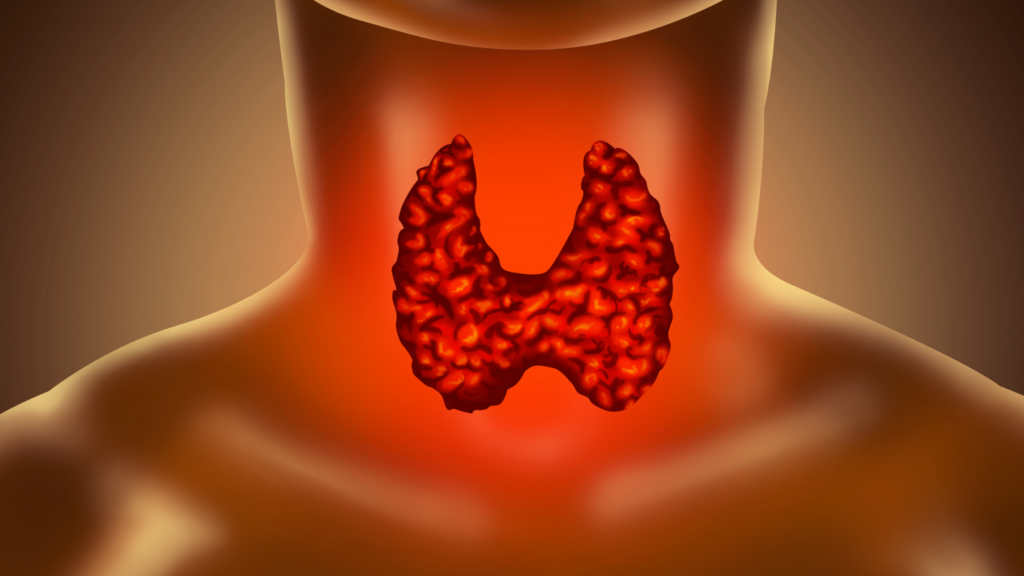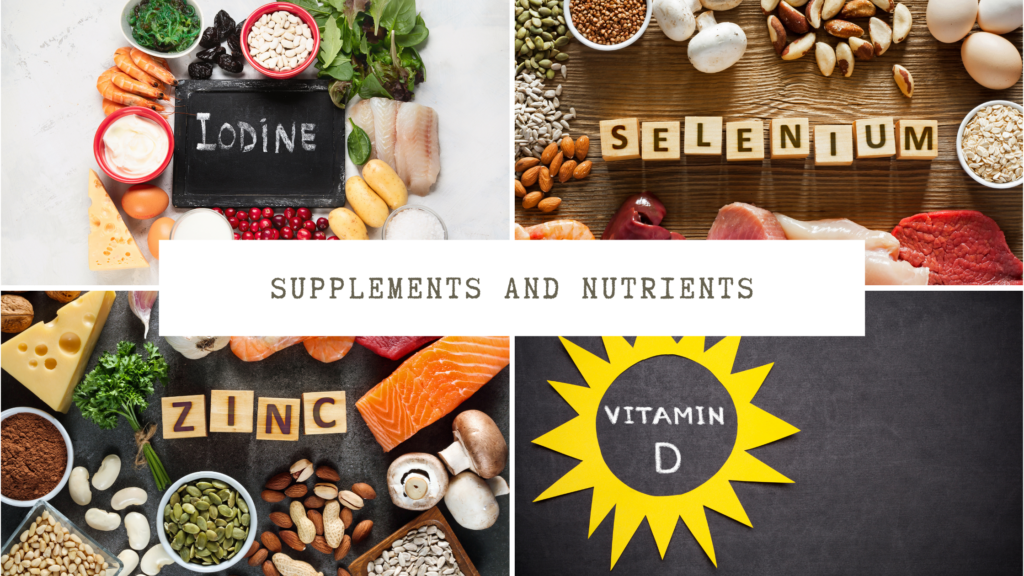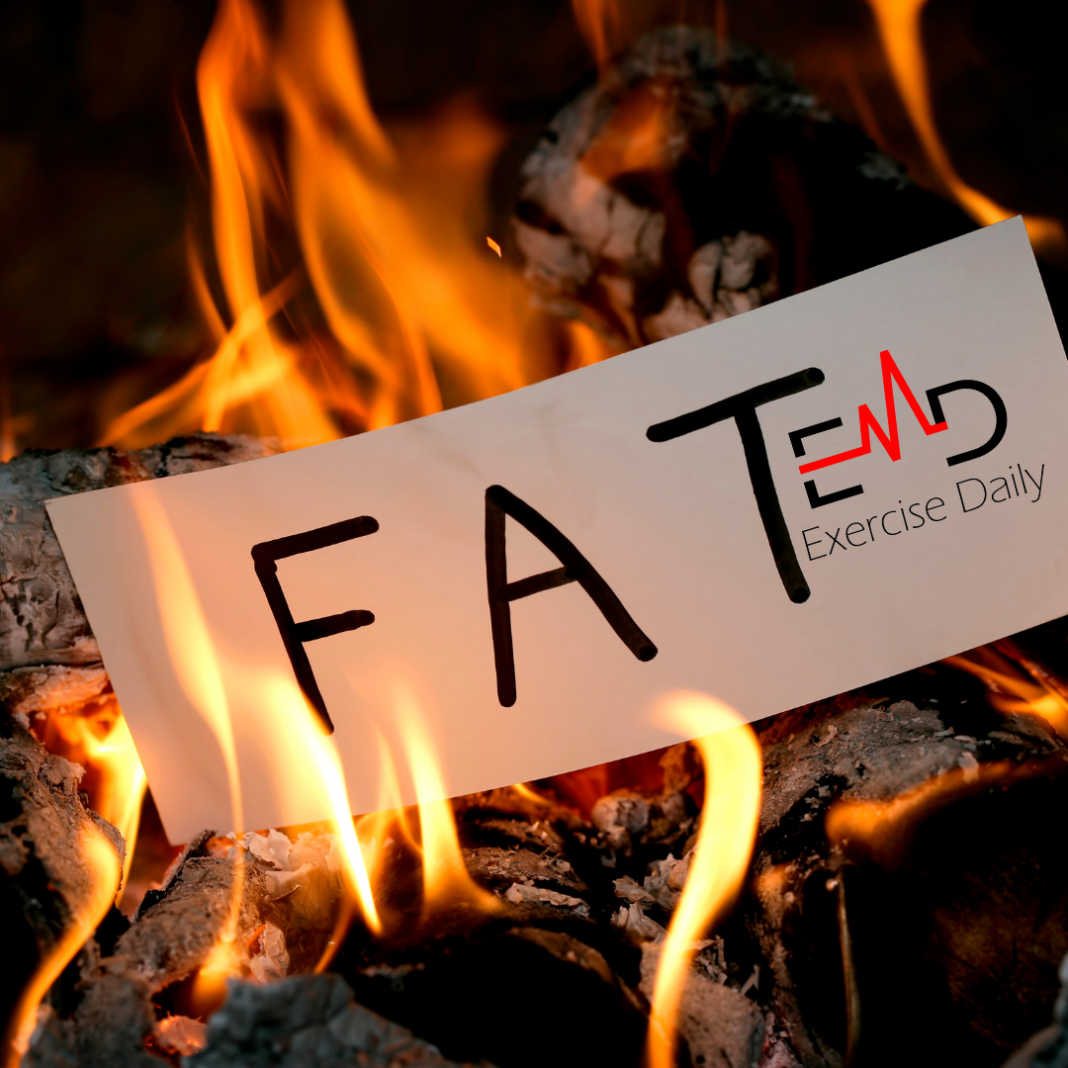Exercise Daily – Hypothyroidism is a medical condition in which the thyroid gland, located in the neck, produces insufficient levels of thyroid hormones. These hormones play a critical role in regulating metabolism and energy levels, making it difficult for individuals with hypothyroidism to maintain a healthy weight.
The good news is that a proper diet plan can effectively manage weight loss with hypothyroidism. This article will explore the basics of a hypothyroidism diet plan for weight loss, including recommended foods to include and avoid, as well as strategies for safe and sustainable weight loss.

Explanation of hypothyroidism and its impact on weight
Hypothyroidism affects the thyroid gland, a small butterfly-shaped gland located in the front of the neck. The thyroid produces hormones that regulate the body’s metabolism, which is the rate at which the body burns calories. When the thyroid gland is not producing enough hormones, metabolism slows down, which can lead to weight gain. Hypothyroidism can also cause fatigue, making it difficult to stick to a regular exercise routine, further exacerbating weight gain.

Importance of a proper diet plan: managing weight loss with hypothyroidism
A proper diet plan is crucial for managing weight loss with hypothyroidism. Eating nutrient-dense, anti-inflammatory foods can support the thyroid and help regulate metabolism. Additionally, tracking food intake and monitoring progress can help identify any problematic foods or eating habits hindering weight loss efforts.
It is important to consult with a healthcare professional and registered dietitian to create a customized diet plan that will work for you, taking into account any underlying health conditions and medications you may be taking. You can manage your weight and improve your thyroid health with the right strategy.
Understanding the Basics of a Hypothyroidism Diet Plan for Weight Loss

When it comes to managing weight loss with hypothyroidism, a proper diet plan is essential. A hypothyroidism diet plan should be tailored to your individual needs and carefully monitored by a healthcare professional. In this section, we’ll cover the basics of a hypothyroidism diet plan for weight loss, including recommended macronutrient breakdown, the role of nutrient-dense and anti-inflammatory foods, and the importance of tracking food intake and monitoring progress.
Recommended macronutrient breakdown (e.g. protein, fats, carbs)
A balanced macronutrient breakdown is crucial for managing weight loss with hypothyroidism. Aiming for a diet with moderate protein, healthy fats, and fibre-rich carbohydrates are recommended.
Protein is important for maintaining muscle mass, which helps with weight loss. Good sources of protein include fish, poultry, eggs, and legumes.
Healthy fats, such as avocado, nuts, seeds, and olive oil, are important for maintaining overall health and promoting weight loss. They also help to keep you feeling full and satisfied.
Fibre-rich carbohydrates, such as vegetables, fruits, and whole grains, are an important part of a hypothyroidism diet plan for weight loss. They provide essential nutrients and help to regulate blood sugar levels.
Role of nutrient-dense, anti-inflammatory foods
Eating nutrient-dense, anti-inflammatory foods is important for managing weight loss with hypothyroidism. These foods are rich in vitamins and minerals and can help reduce inflammation in the body. Some examples of nutrient-dense, anti-inflammatory foods include berries, leafy greens, and fatty fish.
It’s important to note that certain foods, such as gluten and soy, can be inflammatory and should be limited or avoided on a hypothyroidism diet plan for weight loss.
Importance of tracking food intake and monitoring progress
Tracking food intake and monitoring progress is important for managing weight loss with hypothyroidism. Keeping a food diary can help you identify any patterns or triggers affecting your weight loss efforts.
It’s also important to weigh yourself regularly and measure your body composition to track progress. This can help you to make any necessary adjustments to your diet plan and ensure that you are on track to reach your weight loss goals.
It’s important to work with a healthcare professional to monitor progress and ensure that your diet plan is safe and healthy for you.
Hypothyroidism Diet Plan for Weight Loss: Foods to Include

When managing weight loss with hypothyroidism, a well-planned diet can make all the difference. Eating a balanced diet rich in nutrient-dense, anti-inflammatory foods can support thyroid health and help regulate metabolism. Here are some key food groups to include in a hypothyroidism diet plan for weight loss.
High-protein options
Protein is an essential macronutrient that plays a vital role in building and repairing tissues and maintaining muscle mass. For people with hypothyroidism, choosing high-quality, lean protein sources such as fish, poultry, eggs, and legumes are important. These foods are also low in calories and can help curb appetite, making them a great choice for weight loss.
Healthy fats
Fats are an important part of a balanced diet and provide energy, insulation, and cushioning for vital organs. Healthy fats, such as avocado, nuts, seeds, and olive oil, contain essential fatty acids that help reduce inflammation and support the absorption of fat-soluble vitamins.
Fibre-rich carbohydrates
Carbohydrates are the body’s main energy source, but not all carbs are created equal. Choosing fibre-rich carbohydrates, such as vegetables, fruits, and whole grains, can help regulate blood sugar levels and support weight loss. These foods also contain vitamins, minerals, and antioxidants that promote overall health.
Thyroid-supporting foods
Certain foods have been shown to support thyroid health, such as Brazil nuts, an excellent source of selenium, a mineral essential for thyroid function. Seaweed, such as kelp and dulse, are also good sources of iodine, another important mineral for thyroid function. Incorporating these foods into your diet can help support healthy thyroid function and weight loss.
Working with a healthcare professional to create a diet plan tailored to your individual needs and goals is important. A balanced, nutrient-dense diet that includes these foods can help support weight loss and promote overall health.
Hypothyroidism Diet Plan for Weight Loss: Foods to Avoid
Eating a balanced diet is essential for managing hypothyroidism and promoting weight loss. However, certain foods may interfere with thyroid hormone production and exacerbate symptoms of hypothyroidism. Avoiding these foods can support your thyroid health and help you achieve your weight loss goals.
Gluten and Processed Foods
To support your thyroid health and manage your weight, it’s essential to avoid gluten and processed foods as much as possible. Gluten, a protein found in wheat, barley, and rye, can cause inflammation in the gut and interfere with the absorption of thyroid hormones. On the other hand, processed foods often contain added sugars, sodium, and unhealthy fats, which can contribute to weight gain and negatively impact overall health.
Soy Products
Soy contains phytoestrogens that can mimic the effects of estrogen in the body. In people with hypothyroidism, this can lead to an imbalance in hormones and further interfere with thyroid function. To support your thyroid health as much as possible, avoiding soy products, such as tofu, soy milk, and soy protein powder, is best.
Cruciferous Vegetables
Cruciferous vegetables, such as broccoli, cauliflower, and Brussels sprouts, contain goitrogens, compounds that can interfere with the production of thyroid hormones. While these vegetables are generally healthy and nutrient-dense, it’s best to consume them in moderation if you have hypothyroidism.
Certain Types of Fish
Certain types of fish, such as swordfish and tilefish, can contain high levels of mercury, which can be harmful to the thyroid. Additionally, consuming too many fish high in polyunsaturated fatty acids, such as salmon and tuna, can also interfere with the absorption of thyroid hormones. It’s best to limit your consumption of these types of fish and choose wild-caught fish that are lower in mercury, such as cod, sole, and halibut.
In conclusion, while avoiding certain foods can be challenging, paying attention to what you eat is crucial if you have hypothyroidism and want to lose weight. By avoiding gluten, processed foods, soy products, cruciferous vegetables, and certain types of fish, you can support your thyroid health and achieve your weight loss goals safely and sustainably. Remember that it’s essential to work with a healthcare professional to develop a personalized diet plan that meets your unique needs and dietary restrictions.
Supplements and Nutrients to Support Thyroid Health
The thyroid gland is crucial in regulating metabolism and maintaining overall health. Certain supplements and nutrients can be particularly beneficial when it comes to managing hypothyroidism and supporting weight loss.

Iodine
Iodine is an essential element for the production of thyroid hormones. It is found in small amounts in certain foods, such as seafood and seaweed, but many people may not get enough through diet alone. A healthcare professional may recommend an iodine supplement, but it’s important to note that too much iodine can harm people with hypothyroidism.
Selenium
Selenium is a trace mineral that helps convert the thyroid hormone T4 into the active form T3. It can be found in foods such as Brazil nuts, tuna, and turkey, and a selenium supplement may also be recommended by a healthcare professional.
Zinc
Zinc plays a role in the production and conversion of thyroid hormones. Foods such as oysters, beef, and chicken are good sources of zinc, but a zinc supplement may also be recommended by a healthcare professional.
Vitamin D
Vitamin D is important for overall health and has been shown to play a role in thyroid function. It can be obtained through sun exposure or by consuming foods such as fatty fish or fortified dairy products. However, many people may not get enough vitamin D through diet alone, and a supplement may be recommended by a healthcare professional.
Strategies for Safe and Sustainable Weight Loss with Hypothyroidism

Managing hypothyroidism and achieving weight loss can be challenging, but adopting a safe and sustainable approach is important.
Gradual weight loss goals
When it comes to weight loss with hypothyroidism, slow and steady are key. Crash diets or extreme calorie restrictions can slow the metabolism even more and cause other health problems. It’s best to aim for a gradual weight loss of 1-2 pounds per week with the help and guidance of a healthcare professional.
Regular exercise and physical activity
Regular physical activity is important for overall health and can aid in weight loss. It is important to consult with a healthcare professional to determine the right exercise plan for your individual needs. They may recommend cardio and strength training for the best results.
Managing stress and getting enough sleep
Stress and lack of sleep can both hurt thyroid function and weight loss. It’s important to find ways to manage stress, whether it’s through meditation, yoga, or other stress-reduction techniques. Getting enough sleep, ideally, 7-9 hours per night, is also crucial for overall health and weight management.
Working with a healthcare professional
Managing hypothyroidism and achieving weight loss can be a complex process, and working closely with a healthcare professional is important. They can help monitor progress, adjust medications as needed, and provide guidance and support throughout the journey.
This is general information; it’s always best to consult your healthcare professional before starting any supplement or changing your diet or lifestyle.
Conclusion
When it comes to managing weight loss with hypothyroidism, a proper diet plan is crucial. By understanding the basics of a hypothyroidism diet plan for weight loss, including recommended macronutrient breakdowns and thyroid-supporting foods, as well as strategies for safe and sustainable weight loss, individuals with hypothyroidism can take control of their health and reach their weight loss goals.
Recap of key points and recommendations
- A hypothyroidism diet plan for weight loss should include a balance of high-protein options, healthy fats, and fibre-rich carbohydrates, as well as thyroid-supporting foods such as Brazil nuts and seaweed.
- Foods to avoid on a hypothyroidism diet plan for weight loss include gluten, processed foods, soy products, and certain types of fish.
- Supplements and nutrients such as iodine, selenium, zinc, and vitamin D may also support thyroid health.
- Gradual weight loss goals, regular exercise and physical activity, managing stress, and getting enough sleep can also support safe and sustainable weight loss with hypothyroidism.
Emphasis on the importance of an individualized approach and working with a healthcare professional
It’s essential to remember that every person is unique, and their hypothyroidism diet plan should be tailored to their specific needs and goals. Working with a healthcare professional, such as a registered dietitian or endocrinologist, can help ensure your diet plan is safe and effective. They can also monitor your progress and make adjustments as needed.
Encouragement for readers to make sustainable lifestyle changes for improved thyroid and overall health
Making sustainable lifestyle changes, such as incorporating a balanced diet and regular exercise, can significantly impact managing weight loss with hypothyroidism and improving overall health. It’s essential to remember that this is a long-term journey, and progress may not happen overnight. But with the right approach and support, individuals with hypothyroidism can reach their weight loss goals and improve their health.




